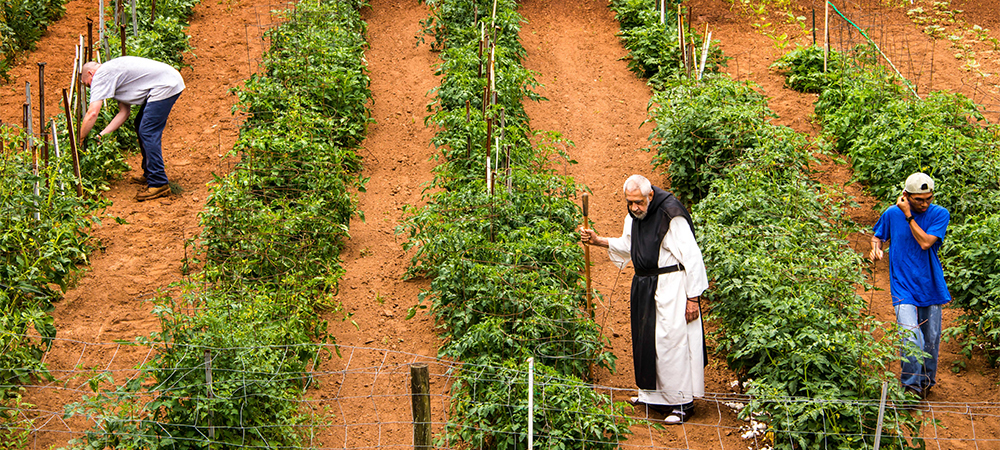We Live by the Work of Our Hands
Work has always been greatly esteemed in Trappist tradition. It gives monks and nuns the opportunity to follow in Christ’s footsteps and share in His divine work of creation and restoration. Sometimes hard and redeeming, work also provides for our livelihood and also for our care of the poor.
Trappist monasteries are often known by the public for making specialty goods that may be purchased online or in our gift shops. At any given abbey, you may find monks and nuns at work crafting cheese, wine, honey, preserves, woodworking or textiles.
Trappists work daily for the glory of God and the good of community.
Self-sufficiency allows a monastery to maintain enough separation from dominant culture to permit lives of prayer and study in communion with our brothers and sisters. In addition to making goods for sale, a lot of work goes into operating the abbey and supporting community life.

We maintain our buildings, which involves carpentry work, plumbing, electricity and continuous cleaning. There are gardens to cultivate, meals to cook, clothing to wash and mend, liturgical booklets to make, financial records to keep and guests to care for.
Being a Trappist monk or nun means acquiring a certain degree of interior freedom to be ready and willing to serve in any of these different capacities.